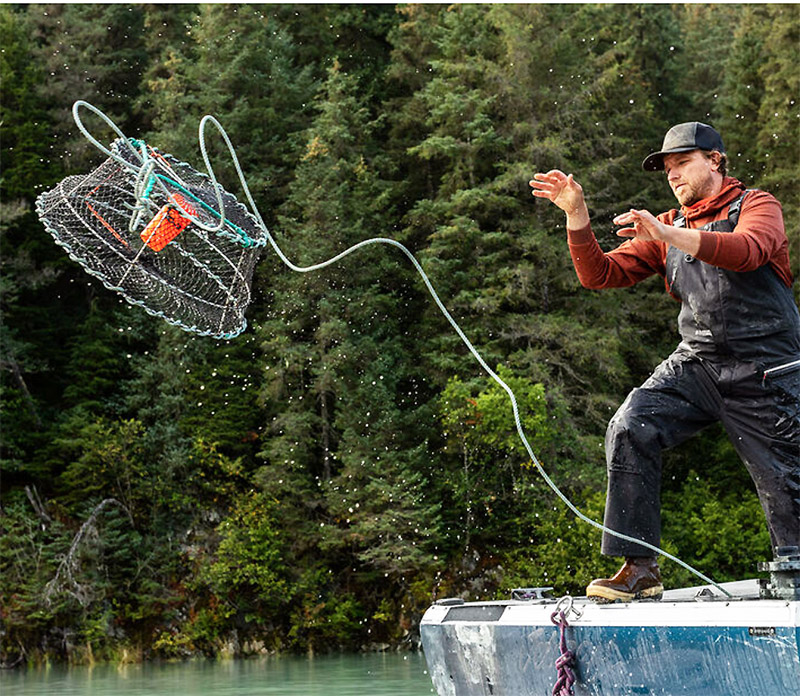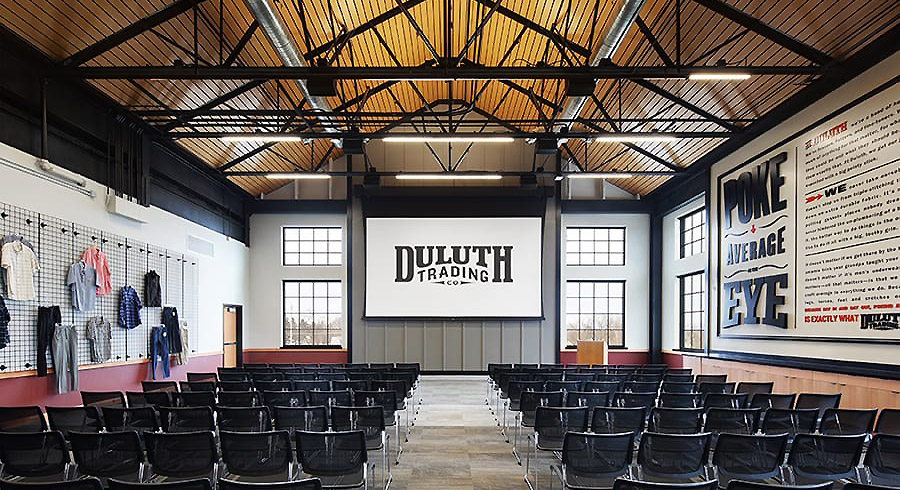Duluth Trading reported sales were down slightly in the fourth quarter due to continued sluggish in-store traffic tied to COVID-19. Officials provided a cautious outlook with the recovery expected to pick up speed in the second half of 2021. One surprise was the announcement of a sales test inside Tractor Supply to potentially mark its move into wholesale distribution.
In the quarter ended January 31, sales slid 1.4 percent to $256.0 million, short of Wall Street’s consensus estimate of $274.1 million. Retail store sales declined 29.1 percent to $68.6 million, while direct-to-consumer (DTC) sales grew 15.1 percent to $187.3 million.
The decrease in retail store sales resulted from ongoing COVID-19 safety concerns keeping store traffic at subdued levels. The increase in DTC sales was driven by a shift of existing customers to online.
Net sales in non-store markets increased 12.9 percent to $85.1 million. The increase was driven by effective digital advertising to promote targeted sales events. Sales in store markets decreased 6.4 percent, to $168.1 million due to in-store restrictions tied to COVID-19 measures. However, the decline in store markets was partially offset by a 20.1 percent increase in DTC sales within those store markets.
DTC sales had a 7.2 percent boost in markets where it has stores versus non-store markets, which Duluth said continues to demonstrate the importance of its retail stores in building brand awareness and driving loyalty.

Women’s apparel sales decreased 3.5 percent, while men’s apparel net sales were down 2.3 percent. This decrease was primarily attributed to slower store traffic due to the COVID-19 and reduced national TV ad spend, partially offset by growth strength in women’s comfortable basics and men’s core products.
Gross margins were flat at 53.0 percent of sales, compared to 52.8 percent a year ago. Reduced discounts on temporary promotions and a higher gross margin rate on clearance activity helped offset lower shipping revenues.
SG&A expenses increased 1.2 percent to $105.1 million. As a percent of sales, SG&A expenses increased to 41.1 percent from 40.0 percent a year ago. The net SG&A increase was primarily due to increased shipping costs to support website sales, which included $1.6 million of COVID-19 carrier surcharges during the latest quarter and increased depreciation expense primarily associated with investments in technology, partially offset by advertising leverage driven by reduced national TV advertising.
Net income fell 10.7 percent to $21.8 million, or 67 cents a share, missing Wall Street’s consensus of 72 cents. Operating income decreased 7.8 percent to $30.5 million. Adjusted EBITDA increased 6.8 percent to $55.5 million.
For the year, sales increased 3.8 percent to $638.8 million. Net income declined 18.0 percent to $13.6 million, or 42 cents. Adjusted EBITDA grew 6.8 percent to $55.5 million.
On a conference call with analysts, Steve Schlecht, executive chairman and CEO, said Duluth benefited by establishing a sizeable online presence. Digital marketing and promotions were ramped up to draw current and new customers to Duluth’s website. As a result, DTC accounted for 72 percent of total 2020 sales, up from 57 percent in 2019.
Said Schlecht, ‘Our online activity soared, as both established and new customers recognized that Duluth products are a sweet spot of their new normal at home and outdoors as customers found their way to the Duluth Trading brand. We saw a 17 percent increase in new buyers, the largest percentage gain in three years.”
He also noted that the company benefited from substantial investments made over the last three years in distribution facilities expansion and online capabilities that supported online orders’ surge.

During the year, Duluth, a no-frills basic workwear line that appeals to a younger, more price-sensitive customer, expanded its Alaskan Hardgear line with a new fishing collection and added the Best Made premium hard goods and workwear line. Other recent additions include Dang Soft underwear, the NoGA Naturale women’s pants collection, and additional pant sizes for men.
For 2021, retail store expansion continues to be on pause, with only one lease signed for the year in Cherry Hills, NJ. Innovations planned include adding women’s collections under the 40 Grit, Alaskan Hardgear and Best Made brands, making investments to expand digital capabilities to support more customized marketing; and improving localized assortments at the store level.

At the beginning of March, Schlecht noted a pilot test began to open Buck Naked Underwear displays inside 13 Tractor Supply stores, representing its first third-party selling relationship with a retailer.
“Tractor Supply is not only one of the biggest successes in retail today, but it is also closely aligned to the Duluth customer base,” said Schlecht. “If the pilot is successful, the concept will be rolled out to other Tractor Supply locations. I think this type of partnership makes sense for Duluth. We see this as a great opportunity to expand our brand awareness with a top-tier partner.”
Schlecht, who founded Duluth in 1986, noted that the company has engaged a search firm to identify its next CEO. He said, “When I reassumed the CEO role in September of 2019, I didn’t expect to stay on as long. However, COVID made the continuity of leadership a deciding factor. Jumping back into day-to-day management gave me a greater appreciation for the talent and dedication of our team. I’m proud of the work we did together during the most trying of times, and I have more confidence than ever in the future of the company.”
For 2021, the outlook calls for:
- Net sales in the range of $680 million to $700 million, representing a gain in the range of 6.4 percent and 9.6 percent;
- Adjusted EBITDA in the range of $66 million to $70 million, up 18.9 percent to 26.1 percent year-over-year; and
- EPS in the range of 64 cents to 70 cents, up 52.3 percent to 66.7 percent.
Duluth officials said sales had shown recovery early in fiscal 2021, climbing 13 percent overall in February and the mid-teens in the first two weeks of March. However, the sales guidance calls for stronger sales in the second half than the first.
“We do expect some near-term pressure in the first half of the year due to the delays in inventory receipts,” said Dave Loretta, CFO. “Our best estimate at this time is that sales growth will be at the lower end of that sales range in the first half of the year and at the higher end of the range in the second half of the year.”
Photos courtesy Duluth Trading Company
















